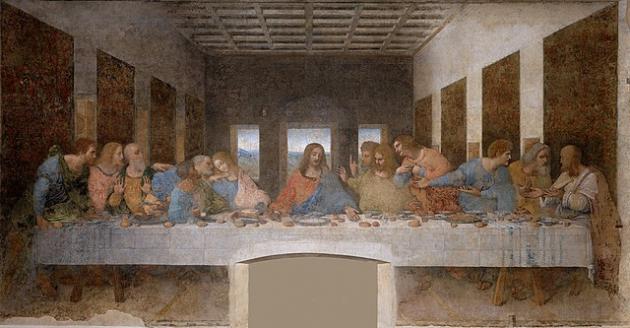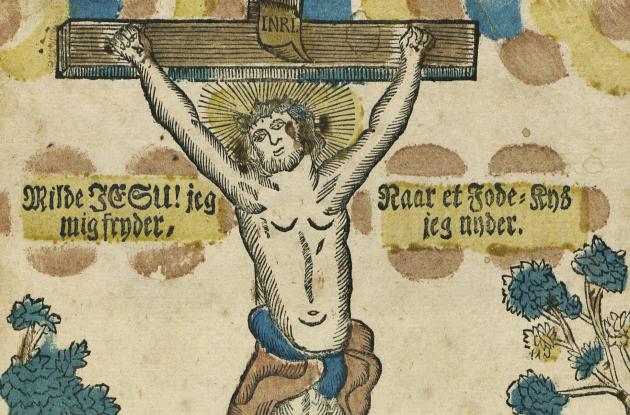Friday the 13th
One to three times a year the 13th falls on a Friday. But why do many not dare to challenge fate that day? We uncover the origin of the fateful day.
In Denmark, we do not believe in either God or nature spirits in the same way as we once did. Nevertheless, we still have a longing to believe in something.
We search for meaning and coherence in astrology, tarot cards and numerology. Some might stop if a black cat crosses the road or they knock "seven, nine, thirteen" under the table. Or they avoid putting a flight or job interview on Friday the 13th. That day is considered by many to be a particularly unfortunate day. But why really?

Photo: Leonardo da Vinci/Wikimedia
Friday + 13 = An unfortunate combination
That the number 13 is associated with bad luck, most people know from childhood. It is, after all, a belief we encounter again and again in fairy tales. In fairy tales, the number 12 is often a magic number. Thereby, the number 13 becomes that which falls outside the good and magical. A damned number. One example is the tale of Sleeping Beauty, where only 12 out of 13 fairies are invited to the table of the king, which is why the 13th fairy curses Sleeping Beauty to sleep for 100 years.
Many are also aware of the notion that one should not be 13 at the table. Not because the dinner set only holds 12 people, but because one of the 13 around the table will die before the year is over. There is still many people, especially in the older generations, who would rather eat in the kitchen than sit down at a fine table that seats up to 13 people.
The idea comes from the New Testament and the story of the Last Supper, where Jesus and his apostles were 13 at the table. Here, the 13th person may be Judas, who subsequently hanged himself, or it may be Jesus himself who was crucified a few days later.
But what about those Fridays? Why are they so unlucky? There we must return to Jesus and the New Testament, for Jesus died, as you know, on Good Friday. That is why many Christians consider that day of the week to be particularly unfortunate.
But in fact, the idea that the combination of Friday and the 13th of a month is particularly unfortunate is not nearly as old.

Photo: NASA/Wikimedia
Americanisation or folk tradition?
The link between the weekday Friday and the date 13 is relatively new. We find the first records in Denmark in the 1940s, where newspaper articles report that the Americans at the time considered Friday the 13th a particularly fateful day.
In the 1940s and 1950s, the Danes looked up to the United States, and like so much else that came from the other side of the Atlantic, the myth of Friday the 13th also entered Denmark. Both through newspaper articles, but to a large extent also through popular culture.
Perhaps the most famous tale of Friday the 13th is the 1980 American film 'Friday the 13th'. In the film, several teenagers are slaughtered in a bestial way each time the calendar shows Friday the 13th. The film was a great success and it ended up with 11 sequels on the same theme.
When Friday the 13th first gained a reputation for being an unfortunate day, numerous examples emerged of horrific incidents on that very day. An example could be the Apollo 13 accident from 1970. The mission ended when the oxygen tank exploded on 13 April. The accident was considered by many to be the absolute proof that the number 13 was a particularly unfortunate or even diabolical number.
What does not fit with our idea of the day of the accident, we quickly forget. For example, not many people know that 13 is the second most drawn number in the lottery, only surpassed by the number 15. And not many people know that Friday is associated with the goddess of love, Freya, in old Nordic mythology.
The belief that Fridays and the number 13 are particularly unfortunate has long roots, but the popularisation of the idea is new. It is an example of traditions and beliefs constantly changing while maintaining its roots in older traditions and beliefs.
